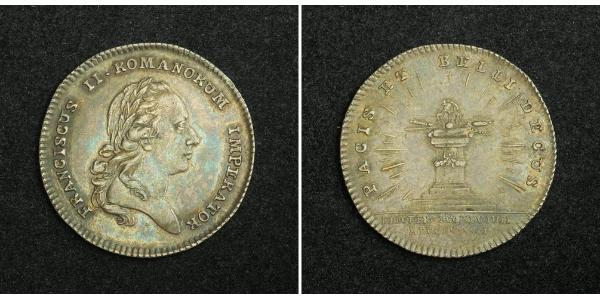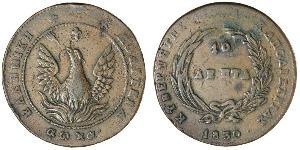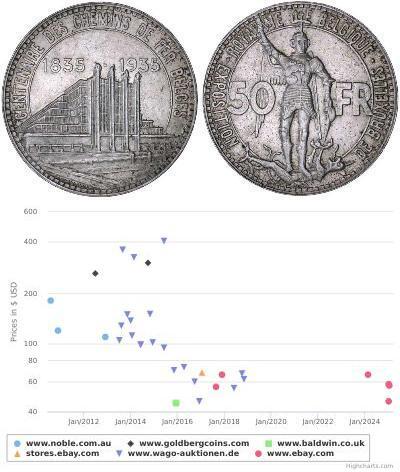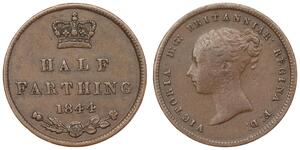(продана за $78.0)
1792, Emperor Francis II. Rare Coronation Ducat Coin. Pattern Strike in Silver!
Mint Year: 1792
Condition: A nicely toned XF-AU!
References: KM-Pn64 (valued at $130, silver striking of the gold KM-282 issue).
Denomination: Pattern Coronation Ducat (struck in silver) - for the Coronation in Frankfurt on 14th July 1792
Diameter: 21mm
Weight: 1.99gm
Material: Silver
Obverse: Wreathed bust of Emperor Francis II right.
Legend: FRANCISCUS II . ROMANORUM IMPERATOR
Reverse: Imperial crown, sword and scepter placed on a cushion, which rests on a wreathed and illuminated base.
Legend: PACIS ET BELLI DECUS "Peace ornaments, war?"
Francis II (German: Franz II, Heiliger Römischer Kaiser) (12 February 1768 – 2 March 1835) was the last Holy Roman Emperor, ruling from 1792 until 6 August 1806, when he dissolved the Empire after the disastrous defeat of the Third Coalition by Napoleon at the Battle of Austerlitz. In 1804 he had founded the Austrian Empire and became Francis I of Austria (Franz I.), the first Emperor of Austria, ruling from 1804 to 1835, so later he was named the one and only Doppelkaiser (double emperor) in history. For the two years between 1804 and 1806 Francis used the title and style by the grace of God elected Roman Emperor, always August, hereditary Emperor of Austria and he was called the Emperor of both Germany and Austria. He was also Apostolic King of Hungary as I. Ferenc and King of Croatia and Slavonia. Francis I continued his leading role as an opponent of Napoleonic France in the Napoleonic Wars, and suffered several more defeats after Austerlitz. The proxy marriage of state of his daughter Marie Louise of Austria to Napoleon I on March 10, 1810 was assuredly his most severe defeat.
Francis presented himself as an open and approachable monarch (he regularly set aside two mornings each week to meet his imperial subjects, regardless of status, by appointment in his office, even speaking to them in their own language), but his will was sovereign. In 1804, he had no compunction about announcing that through his authority as Holy Roman Emperor, he declared he was now Emperor of Austria (at the time a geographical term that had little resonance). Two years later, Francis personally wound up the moribund Holy Roman Empire of the German Nation. Both actions were of dubious constitutional legality.

|
Добавил:
anonymous 2014-04-28 |
1/2 Фартинг Соединённое королевство Великобритании и Ирланди ...
в группе 9 монет / 8 цен
⇑
















-300-150-YYnBwcI0woEAAAEnE4RaOLOG.jpg)






